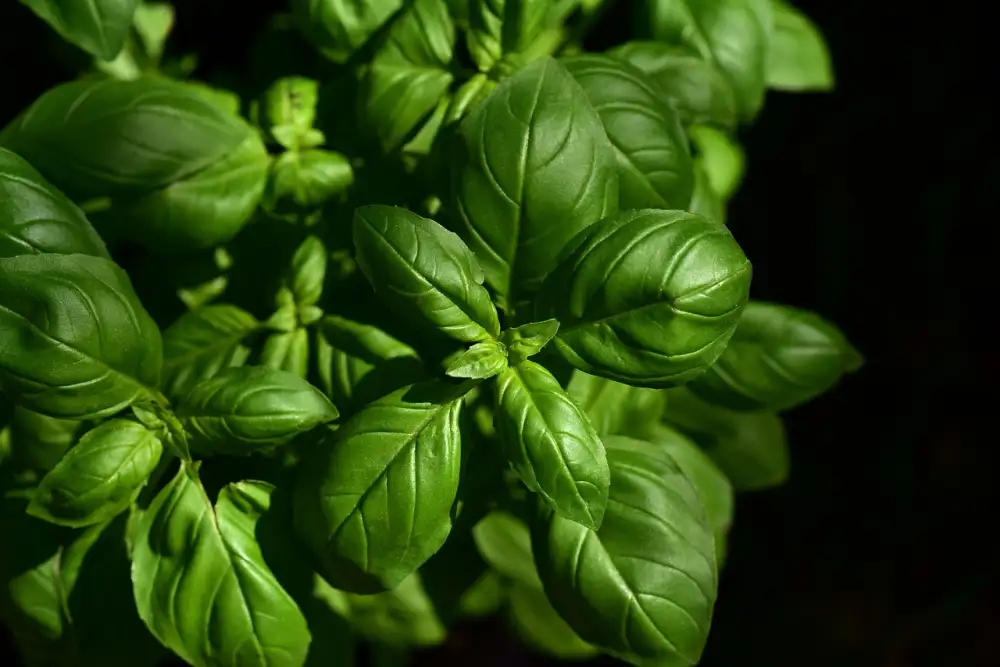Unlock the Secrets of Authentic Italian Seasoning: Elevate Your Culinary Skills with this Exquisite Blend of Dried Herbs

Italian seasoning is a versatile blend of dried herbs that adds a burst of flavor to any dish. It is a staple in Italian cuisine and can elevate your culinary skills to new heights. Whether you are a kitchen novice or a seasoned pro, unlocking the secrets of authentic Italian seasoning will take your cooking to the next level. From pasta sauces to roasted vegetables, this exquisite blend of herbs will transport your taste buds to Italy with every bite. Get ready to embark on a flavorful journey as we explore the history, ingredients, uses, and health benefits of Italian seasoning.
History and Origins of Italian Seasoning
Italian seasoning is a blend of dried herbs that has become a staple in Italian cuisine. Its origins can be traced back to ancient Rome, where the use of herbs and spices in cooking was prevalent. The Romans believed that certain herbs had medicinal properties and used them to enhance the flavor of their dishes.
Over time, Italian seasoning evolved as different regions in Italy developed their own unique blends. Each region had its preferred combination of herbs, depending on the local climate and availability. Some common herbs found in Italian seasoning include basil, oregano, thyme, rosemary, marjoram, and parsley.
Italian seasoning gained popularity outside of Italy during the Renaissance period when Italian cuisine began to influence European cooking. It became a key ingredient in many Mediterranean dishes and was widely used by chefs to add depth and complexity to their recipes.
Today, Italian seasoning is beloved worldwide for its aromatic flavors and versatility. It adds a burst of freshness to pasta sauces, soups, salads, marinades, and grilled meats. Whether you're making a classic spaghetti Bolognese or a simple Caprese salad, Italian seasoning brings an authentic taste of Italy to your kitchen.
Ingredients in Italian Seasoning
Italian seasoning is a versatile blend of dried herbs that adds a burst of flavor to any dish. The key ingredients in Italian seasoning include basil, oregano, rosemary, thyme, and marjoram. These herbs are carefully selected for their aromatic qualities and ability to complement various Italian dishes. The combination of these herbs creates a unique and authentic taste that is characteristic of Italian cuisine. Each herb contributes its own distinct flavor profile, resulting in a well-balanced seasoning blend that can elevate the taste of your dishes to new heights.
Popular Uses of Italian Seasoning in Italian Cuisine
Italian seasoning is a versatile blend that adds depth and flavor to a wide range of Italian dishes. It is commonly used in pasta sauces, pizzas, soups, and stews. The herbaceous notes of basil, oregano, thyme, and rosemary complement the rich flavors of tomatoes, garlic, and olive oil. Italian seasoning can also be sprinkled over roasted vegetables or grilled meats to add a burst of Mediterranean flavor. Its ability to enhance the taste of various dishes makes it an essential ingredient in Italian cuisine.
Health Benefits of Italian Seasoning
Italian seasoning not only adds flavor to your dishes but also provides several health benefits. The blend of dried herbs in Italian seasoning contains various nutrients and antioxidants that promote overall well-being. Oregano, one of the main ingredients, is rich in vitamins A, C, and K, as well as minerals like calcium and iron. Basil, another component, is known for its anti-inflammatory properties and high levels of vitamin K. Rosemary, thyme, and marjoram contribute to Italian seasoning's antioxidant content, which helps protect against cell damage. Additionally, these herbs may aid digestion and boost the immune system. By incorporating Italian seasoning into your cooking, you can enhance both the taste and nutritional value of your meals.
Tips for Using Italian Seasoning in Your Cooking
1. Start with a small amount: Italian seasoning is quite potent, so it's best to start with a small amount and adjust according to your taste preferences.
2. Use it as a rub: Italian seasoning works wonders as a dry rub for meats like chicken, beef, or pork. Simply sprinkle it on the meat before grilling or roasting for added flavor.
3. Enhance pasta dishes: Add Italian seasoning to your pasta sauces, whether it's marinara, Bolognese, or Alfredo. It will give your sauce a burst of authentic Italian flavor.
4. Sprinkle on pizza: Before baking your homemade pizza, sprinkle some Italian seasoning on top for an extra layer of taste. It pairs perfectly with the flavors of tomato sauce and cheese.
5. Jazz up vegetables: Toss roasted or steamed vegetables with a pinch of Italian seasoning to elevate their taste. It works particularly well with zucchini, eggplant, and bell peppers.
6. Experiment with soups and stews: Add Italian seasoning to your favorite soups and stews for a depth of flavor that will transport you straight to Italy.
7. Mix into dips and dressings: Whether you're making a creamy dip or a tangy salad dressing, adding some Italian seasoning will take it to the next level.
Remember, moderation is key when using Italian seasoning as it can easily overpower other flavors in your dish. So start slowly and gradually increase the amount until you find the perfect balance that suits your palate.
How to Make Homemade Italian Seasoning
Making homemade Italian seasoning is a simple and rewarding process. To create your own blend, start by gathering the following dried herbs: basil, oregano, thyme, rosemary, parsley, and marjoram. You can adjust the proportions of each herb according to your personal taste preferences. Combine the herbs in a bowl and mix well to ensure an even distribution. Store your homemade Italian seasoning in an airtight container in a cool, dark place to maintain its freshness. Experiment with different ratios of herbs until you find the perfect blend that suits your palate. Enjoy the satisfaction of elevating your dishes with this exquisite homemade Italian seasoning.
Where to Buy Italian Seasoning
When it comes to buying Italian seasoning, you have several options. One convenient option is to purchase it from your local grocery store. Most supermarkets carry a variety of brands and sizes of Italian seasoning in the spice aisle. You can also find Italian seasoning at specialty stores that focus on international ingredients or gourmet products.
If you prefer the convenience of online shopping, there are numerous websites where you can buy Italian seasoning. Online retailers like Amazon offer a wide selection of brands and package sizes, allowing you to choose according to your preferences and needs. Additionally, many spice companies have their own websites where you can order directly from them.
Another option is to visit local farmers' markets or specialty food stores that sell homemade or artisanal Italian seasoning. These places often offer unique blends made with high-quality ingredients sourced locally or from Italy itself.
Lastly, if you enjoy experimenting in the kitchen, you can make your own homemade Italian seasoning using a combination of dried herbs and spices. This allows you to customize the blend according to your taste preferences.
No matter where you decide to buy Italian seasoning, always check the expiration date and ensure that the packaging is sealed properly for maximum freshness. With a little research and exploration, you'll be able to find the perfect Italian seasoning that will elevate your culinary creations to new heights.
Italian seasoning is a versatile blend of dried herbs that can elevate your culinary skills and add authentic flavors to your dishes. Whether you are preparing pasta, pizza, soups, or roasted vegetables, Italian seasoning can bring a touch of Italy to your kitchen.
By using Italian seasoning, you can unlock the secrets of traditional Italian cuisine and create delicious meals that will impress your family and friends. The combination of herbs like basil, oregano, thyme, rosemary, and parsley adds depth and complexity to your recipes.
Not only does Italian seasoning enhance the taste of your dishes, but it also offers numerous health benefits. The herbs in this blend are rich in antioxidants and have anti-inflammatory properties. They can boost digestion, improve heart health, and even strengthen the immune system.
When using Italian seasoning in your cooking, remember to start with a small amount and adjust according to your taste preferences. It is best to add it towards the end of cooking to preserve the flavors of the herbs.
If you want to take your culinary skills to the next level, consider making homemade Italian seasoning. This allows you to customize the blend according to your preferences and ensures that you are using high-quality ingredients.
You can find Italian seasoning in most grocery stores or online retailers specializing in spices and seasonings. Look for reputable brands that offer organic options for a more authentic experience.
In conclusion, adding Italian seasoning to your pantry is a must for any aspiring chef or home cook. Its rich history, versatile uses, health benefits, and ease of availability make it an essential ingredient in elevating your dishes to new heights of excellence. So go ahead and unlock the secrets of authentic Italian seasoning – it's time to take your culinary skills on a journey through Italy's flavorful traditions!
Published: 01. 12. 2023
Category: Food



